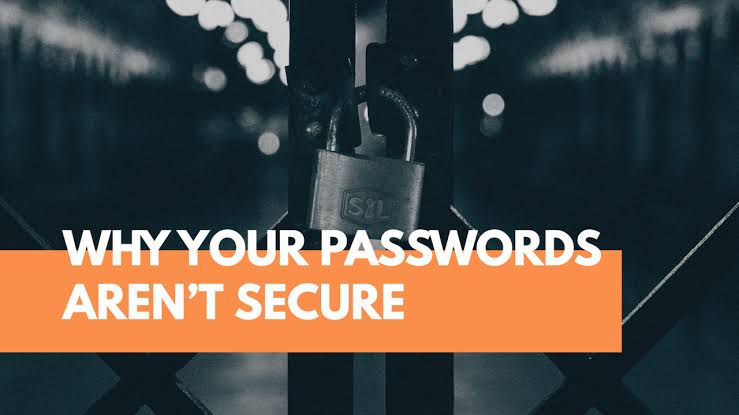
Why Your Passwords Aren’t Safe Anymore: Cybersecurity Explained
Created on 8 November, 2024 • Technolgy • 18 views • 1 minutes read
In today’s digital world, your passwords are supposed to be the gatekeepers of your personal information. But what if those gates are no longer secure?
1. The Rise of Sophisticated Hacking Techniques
Hackers are no longer relying on simple guesswork. Advanced tools like brute force attacks, credential stuffing, and phishing schemes make it easier than ever to crack even the most complex passwords.
Key Stats:
Over 80% of data breaches are due to weak or stolen passwords.
Hackers can run millions of password combinations in seconds using powerful computers.
---
2. Data Breaches Are Commonplace
Major corporations experience data breaches frequently, exposing millions of passwords to the dark web. Even if your password is strong, it could be compromised in a breach you’re unaware of.
Recent Examples:
High-profile breaches in 2024 included companies like [insert examples], affecting millions of users.
---
3. Password Reuse Is a Major Problem
Many people use the same password across multiple sites for convenience. However, once one account is compromised, hackers can access other accounts using the same credentials.
Why It’s Risky:
A single breach can snowball into multiple compromised accounts.
Personal and financial information is at risk.
---
4. Keyloggers and Malware
Hackers can deploy malicious software, such as keyloggers, to record your keystrokes and steal your passwords without you even realizing it.
How They Work:
Installed via malicious links or downloads
Operate silently, capturing sensitive data
---
How to Stay Protected
1. Use Multi-Factor Authentication (MFA)
MFA adds an extra layer of security by requiring a second form of verification, such as a code sent to your phone or a fingerprint scan.
Why It Works:
Even if your password is compromised, your account remains secure.
2. Implement a Password Manager
Password managers generate and store complex passwords, ensuring that each of your accounts has a unique and secure password.
Benefits:
No need to remember multiple passwords
Encrypted storage keeps your passwords safe
3. Regularly Update Passwords
Changing your passwords frequently reduces the risk of long-term exposure if a password is compromised.
Best Practices:
Avoid using common words or phrases
Use a mix of letters, numbers, and symbols
4. Stay Vigilant Against Phishing Attacks
Phishing emails trick users into revealing their credentials. Be cautious of suspicious emails and never click on unknown links.
Red Flags:
Urgent language prompting immediate action
Emails from unrecognized sources
---
Conclusion:
Passwords alone can no longer guarantee your online security. By understanding the risks and adopting stronger cybersecurity practices, you can protect yourself from the growing threat of cyberattacks. Don’t wait until it’s too late—start securing your digital life today.
Popular posts
-
Coin Master free spins & coins daily links January 2023Games • 2,832 views
-
AI in Healthcare: Advancements and ChallengesTechnolgy • 1,631 views
-
7 Simple Steps to Rank Number 1 in Google SearchTechnolgy • 1,313 views
-
E-commerce EvolutionTechnolgy • 1,000 views
-